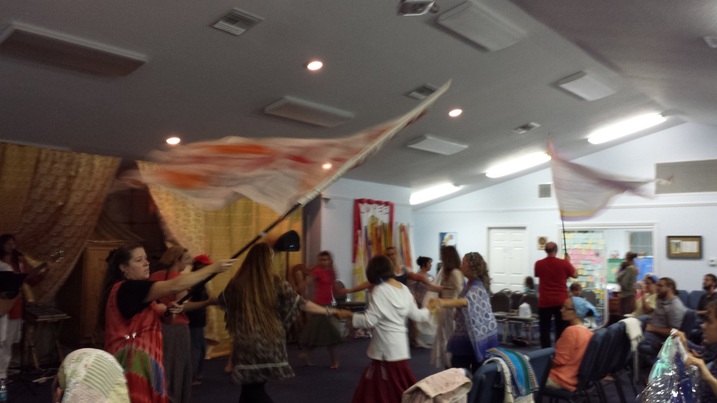
We had a great time at Sukkot. It is a wonderful thing for brethern to be together. We had some trials in the beginning and some rain but we perservered and met Yahweh in many ways with wonderful praise and love for each other. We have met new friends and were able to fellowship with old ones that we have not seen in a while. Yah truly ministered to many of us that were seeking direction in our lives. He truly deserves the praise.
The following is from the lessons we studied during the Roots That Run Deep portion. There are six parts. We will be seeking out the trees of life in scripture. These are little nuggets of inspiration to help us have a better life or if you like, it will cause our roots to run a little deeper to weather those storms of life.
-------------------------------------------------------------------------------------------------
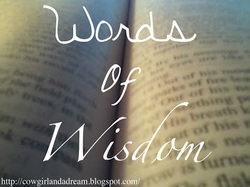
Day 1 Wisdom is a tree of life to those that find her.
Proverbs 3:18 She [is] a tree of life to them that lay hold upon her: and happy [is every one] that retaineth her. KJV
One definition of Wisdom is a deep understanding and realization of people, things, events or situations, resulting in the ability to apply perceptions, judgements and actions in keeping with this understanding. It often requires control of one's emotional reactions (the "passions") so that universal principles, reason and knowledge prevail to determine one's actions. Wisdom is also the comprehension of what is true coupled with optimum judgement as to action. Synonyms include: sagacity, discernment, or insight A basic definition of wisdom is the right use of knowledge.[1] The opposite of wisdom is folly. Wikipedia.org
Another definition of WISDOM (Hebr. ; Greek, σοφία): http://www.jewishencyclopedia.com/articles/14950-wisdom ) Practical intelligence; the mental grasp which observes and penetrates into the nature of things, and also the ability skilfully to perform difficult tasks. The former faculty is intuitive, the latter creative. Hence the word connotes both deep understanding and artistic skill. Wisdom is at once a human and a divine property.
As an example when you had your first baby you read all the books but every event was new and once that baby was home even with all the knowledge of what to do you did not have the wisdom to prepare you for what was in store.
Here is an excerpt from the introduction to The Big Idea from the book Be Skillful written by Warren Wiersbe
"King Solomon was the wisest man who had ever lived. He asked Elohim for a discerning heart and the ability to distinguish between right and wrong, and Elohim granted his request that he also gave him riches and honor ( 1 Kings 3: 9,12,13 so much so that during his lifetime, King Solomon had no equal. One would think that the king who had everything all the riches and fame one could possibly imagine would be on top of the world all the time. Yet when you read his outlook on life recorded in the book of Ecclesiastes, you get a very different picture, Yet when I surveyed all that my hands had done and what I had toiled to achieve, everything was meaningless. A chasing after the wind; nothing was gained under sun Eccl 2:11 Wow How could a man who had everything come to such a place of despair? What happened to him? I mean the first twenty years of King Solomon's reign were amazing. He had peace on every side of his kingdom, Elohim blessed him with wisdom and wealth beyond any king of his day, he completed the temple that King David his father instructed him to build he designed and built for himself a magnificent palace and he had and incredible amount of money and annual income equivalent to 328 million in our day and in addition to all of this King Solomon had the respect and admiration of the entire world! So how did a guy who had all of this fall into the pit of despair? I believe the answer is that Solomon didn’t obey Yahweh he knew Elohim’s Word but did not apply it to his life. I think there is a formula to wisdom: Wisdom= knowledge + obedience. King Solomon had all the knowledge he always knew what Elohim wanted him to do. He just didn’t do it. There is a difference between knowledge and wisdom. Knowledge is knowing the right thing to do wisdom is actually doing it. The Author thinks the big idea that runs throughout the book of Proverbs is not just getting more and more knowledge instead its choosing to apply that knowledge in ways that honoe and please Yahweh True wisdom isn seen through an obedient life. The book of James tells us do not merely listen to the word and so deceive yourselves. Do what it says. James 1:22"
Proverbs 3:18 She [is] a tree of life to them that lay hold upon her: and happy [is every one] that retaineth her. KJV
One definition of Wisdom is a deep understanding and realization of people, things, events or situations, resulting in the ability to apply perceptions, judgements and actions in keeping with this understanding. It often requires control of one's emotional reactions (the "passions") so that universal principles, reason and knowledge prevail to determine one's actions. Wisdom is also the comprehension of what is true coupled with optimum judgement as to action. Synonyms include: sagacity, discernment, or insight A basic definition of wisdom is the right use of knowledge.[1] The opposite of wisdom is folly. Wikipedia.org
Another definition of WISDOM (Hebr. ; Greek, σοφία): http://www.jewishencyclopedia.com/articles/14950-wisdom ) Practical intelligence; the mental grasp which observes and penetrates into the nature of things, and also the ability skilfully to perform difficult tasks. The former faculty is intuitive, the latter creative. Hence the word connotes both deep understanding and artistic skill. Wisdom is at once a human and a divine property.
As an example when you had your first baby you read all the books but every event was new and once that baby was home even with all the knowledge of what to do you did not have the wisdom to prepare you for what was in store.
Here is an excerpt from the introduction to The Big Idea from the book Be Skillful written by Warren Wiersbe
"King Solomon was the wisest man who had ever lived. He asked Elohim for a discerning heart and the ability to distinguish between right and wrong, and Elohim granted his request that he also gave him riches and honor ( 1 Kings 3: 9,12,13 so much so that during his lifetime, King Solomon had no equal. One would think that the king who had everything all the riches and fame one could possibly imagine would be on top of the world all the time. Yet when you read his outlook on life recorded in the book of Ecclesiastes, you get a very different picture, Yet when I surveyed all that my hands had done and what I had toiled to achieve, everything was meaningless. A chasing after the wind; nothing was gained under sun Eccl 2:11 Wow How could a man who had everything come to such a place of despair? What happened to him? I mean the first twenty years of King Solomon's reign were amazing. He had peace on every side of his kingdom, Elohim blessed him with wisdom and wealth beyond any king of his day, he completed the temple that King David his father instructed him to build he designed and built for himself a magnificent palace and he had and incredible amount of money and annual income equivalent to 328 million in our day and in addition to all of this King Solomon had the respect and admiration of the entire world! So how did a guy who had all of this fall into the pit of despair? I believe the answer is that Solomon didn’t obey Yahweh he knew Elohim’s Word but did not apply it to his life. I think there is a formula to wisdom: Wisdom= knowledge + obedience. King Solomon had all the knowledge he always knew what Elohim wanted him to do. He just didn’t do it. There is a difference between knowledge and wisdom. Knowledge is knowing the right thing to do wisdom is actually doing it. The Author thinks the big idea that runs throughout the book of Proverbs is not just getting more and more knowledge instead its choosing to apply that knowledge in ways that honoe and please Yahweh True wisdom isn seen through an obedient life. The book of James tells us do not merely listen to the word and so deceive yourselves. Do what it says. James 1:22"
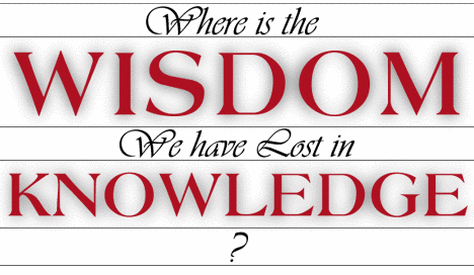
We can learn from that as well, just as in my life I have made some bad decisions because I did not listen or know the wisdom taught in the Torah. This is to the enemy’s advantage that we do not know the wisdom in scripture that we don’t search it out and apply it through obedience even when we don’t want to.
Where is the wisdom we have lost in knowledge? Asked the late British poet T. S. Elliot."Where is the knowledge we have lost in information?"
"We are living in the information age but we certainly are not living in the age of wisdom. Many people who are great with computers seem to amateurs when it comes to making a success out of their lives. Computers can store data obey signals but they cannot give us the ability to use that knowledge wisely. What’s needed today is wisdom.
The book of proverbs is about godly wisdom how to get it and how to use it. It’s about priorities and principles not get rich quick schemes or success formulas it tells you not how to make a living but how to be skillful in the lost art of making a life."
Where is the wisdom we have lost in knowledge? Asked the late British poet T. S. Elliot."Where is the knowledge we have lost in information?"
"We are living in the information age but we certainly are not living in the age of wisdom. Many people who are great with computers seem to amateurs when it comes to making a success out of their lives. Computers can store data obey signals but they cannot give us the ability to use that knowledge wisely. What’s needed today is wisdom.
The book of proverbs is about godly wisdom how to get it and how to use it. It’s about priorities and principles not get rich quick schemes or success formulas it tells you not how to make a living but how to be skillful in the lost art of making a life."
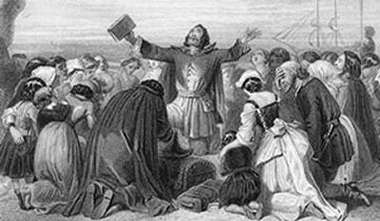
When we look in Deuteronomy in chapter four we see how the wisdom of Yah's Torah can affect the whole country.
Deu 4:5 Behold, I have taught you statutes and judgments, even as the LORD my God commanded me, that ye should do so in the land whither ye go to possess it.
Deu 4:6 Keep therefore and do [them]; for this [is] your wisdom and your understanding in the sight of the nations, which shall hear all these statutes, and say, Surely this great nation [is] a wise and understanding people.
The Torah has affected many a country and religion and has influenced many written laws. Here is an interesting article on how the Torah influenced the founding of American life.
America & Jewish Values http://www.simpletoremember.com/articles/a/jewsamerica/
The United States was the first country to be created, from its inception, as a democracy. And the Bible played a major role in the process.
The creation of the United States of America represented a unique event in world history. Unlike other countries where democracy evolved over a period of hundreds of years, the United States was the first country to be created, from its inception, as a democracy. And the Bible—and Jewish values—played a major role in this process.
Many of the earliest “pilgrims” who settled the “New England” of America in early 17th century were Puritan refugees escaping religious persecutions in Europe.
Over the next century, America continued to be not only the land of opportunity for many people seeking a better life but also the land of religious tolerance. By the middle 1700’s, the east coast of America was settled by a virtual “Who’s Who” of Christian splinter sects from all over Europe. Among them were:
The majority of the earliest settlers were, of course, Puritans. Beginning with the Mayflower, over the next twenty years, 16,000 Puritans migrated to the Massachusetts Bay Colony, and many more settled in Connecticut and Rhode Island. Like their cousins back in England, these American Puritans strongly identified with both the historical traditions and customs of the ancient Hebrews of the Old Testament. They viewed their emigration from England as a virtual re-enactment of the Jewish exodus from Egypt. To them, England was Egypt, the king was Pharaoh, the Atlantic Ocean was the Red Sea, America was the Land of Israel, and the Indians were the ancient Canaanites. They were the new Israelites, entering into a new covenant with God in a new Promised Land. Thanksgiving—first celebrated in 1621, a year after the Mayflower landed—was initially conceived as day parallel to the Jewish Day of Atonement, Yom Kippur; it was to be a day of fasting, introspection and prayer.
Here is another historical fact from : Gabriel Sivan, in The Bible and Civilization, (p. 236) observes:
No Christian community in history identified more with the People of the Book than did the early settlers of the Massachusetts Bay Colony, who believed their own lives to be a literal reenactment of the Biblical drama of the Hebrew nation. They themselves were the children of Israel; America was their Promised Land; the Atlantic Ocean their Red Sea; the Kings of England were the Egyptian pharaohs; the American Indians the Canaanites (or the Lost Ten Tribes of Israel); the pact of the Plymouth Rock was God’s holy Covenant; and the ordinances by which they lived were the Divine Law. Like the Huguenots and other Protestant victims of Old World oppression, these émigré Puritans dramatized their own situation as the righteous remnant of the Church corrupted by the “Babylonian woe,” and saw themselves as instruments of Divine Providence, a people chosen to build their new commonwealth on the Covenant entered into at Mount Sinai.
In England, the Puritan identification with the Bible was so strong that some Puritan extremists sought to replace English common law with Biblical laws of the Old Testament, but were prevented from doing so. In America, however, there was far more freedom to experiment with the use of Biblical law in the legal codes of the colonies, and this was exactly what these early colonist set out to do.
The earliest legislation of the colonies of New England was all determined by Scripture. At the first assembly of New Haven in 1639, John Davenport clearly stated the primacy of the Bible as the legal and moral foundation of the colony:
Scriptures do hold forth a perfect rule for the direction and government of all men in all duties which they are to perform to God and men as well as in the government of families and commonwealth as in matters of the Church ... the Word of God shall be the only rule to be attended unto in organizing the affairs of government in this plantation. (See Abraham I Katsch, The Biblical Heritage of American Democracy, p. 97)
Subsequently, the New Haven legislators adopted a legal code—the Code of 1655—which contained some 79 statutes, half of which contained Biblical references, virtually all from the Hebrew Bible. The Plymouth Colony had a similar law code as did the Massachusetts assembly, which, in 1641—after an exhortation by Reverend John Cotton who presented the legislators with a copy of Moses, His Judicials—adopted the so-called “Capitall Lawes of New England” based almost entirely on Mosaic law. A very significant political evolution was taking place in the New World. Unlike the Puritans in England who, of necessity, lived under English common law and were ruled by a King and Parliament, the Puritans of America had no central authority or national governing body. Yet, they did not lapse into anarchy. Instead, they created communities governed by elected councils of elders similar to the “presbyters” of England. Their communities were both stable and prosperous, with mandatory school systems modeled after the Jewish ones.
This unique political evolution goes a long way toward explaining the strong sense of independence shared by the colonies and the early success of democracy in America. The Puritans felt that God was watching them, and fear of heaven was a thousand times stronger than fear of the crown.
It almost seems as if these early settlers had recreated the Biblical period of the “Judges,” when, following the conquest of Jericho and settlement of Canaan, Israel had no king or central authority and “every man did what was right in his own eyes.” (Judges 21:25)
What was right in Puritan eyes, of course, was what the Bible said. But what did it say exactly? So much of it could be subject to interpretation of the reader.
Without the Jewish Oral Law, which helped the Jews understand the Bible, the Puritans were left to their own devices and tended toward a literal interpretation. This sometimes led to a stricter, more fundamentalist observance than Judaism had ever seen. For example, the Jewish Sabbath is a day of refraining from work as the Bible mandates. However, “work”—in Hebrew melacha—is defined by Jewish Oral Law as cessation of all creative activity that was in progress when the Tabernacle was being built and which, the Bible states, ceased on the Sabbath. But the Puritans took the commandment to cease work as unconditional. And their prohibitions were actually more restrictive than what the Jews had themselves practiced. Even household chores such as sweeping floors, making beds, or feeding animals were not allowed for the twenty-four hours of the day of rest. Adherence was enforced by fines and public floggings.
While we stress the importance of the Hebrew Bible to the early American settlers, it is important to note that, of course, the “New Testament” was revered as well. However, the Hebrew Bible was seen as the original and pure source of Christian values, and also as a legalistic and ritualistic guide, something which the New Testament was not.
Deu 4:5 Behold, I have taught you statutes and judgments, even as the LORD my God commanded me, that ye should do so in the land whither ye go to possess it.
Deu 4:6 Keep therefore and do [them]; for this [is] your wisdom and your understanding in the sight of the nations, which shall hear all these statutes, and say, Surely this great nation [is] a wise and understanding people.
The Torah has affected many a country and religion and has influenced many written laws. Here is an interesting article on how the Torah influenced the founding of American life.
America & Jewish Values http://www.simpletoremember.com/articles/a/jewsamerica/
The United States was the first country to be created, from its inception, as a democracy. And the Bible played a major role in the process.
The creation of the United States of America represented a unique event in world history. Unlike other countries where democracy evolved over a period of hundreds of years, the United States was the first country to be created, from its inception, as a democracy. And the Bible—and Jewish values—played a major role in this process.
Many of the earliest “pilgrims” who settled the “New England” of America in early 17th century were Puritan refugees escaping religious persecutions in Europe.
Over the next century, America continued to be not only the land of opportunity for many people seeking a better life but also the land of religious tolerance. By the middle 1700’s, the east coast of America was settled by a virtual “Who’s Who” of Christian splinter sects from all over Europe. Among them were:
- the Puritans, whom we already know so well
- the Quakers, an extremist Puritan sect who did not believe in ministers and for whom a Society of Friends meeting together was good enough to bring down the Holy Spirit
- Calvinists, who early on had challenged the Catholic belief that the bread and wine became the body and blood of Jesus in the celebration of the mass
- the Huguenots, or French Calvinists
- the Moravians, followers of John Hus, the protestant martyr from Bohemia
- the Mennonites, a Swiss sect of Anabaptists who rejected infant baptism
- the Amish, the most stringent of the Mennonites
The majority of the earliest settlers were, of course, Puritans. Beginning with the Mayflower, over the next twenty years, 16,000 Puritans migrated to the Massachusetts Bay Colony, and many more settled in Connecticut and Rhode Island. Like their cousins back in England, these American Puritans strongly identified with both the historical traditions and customs of the ancient Hebrews of the Old Testament. They viewed their emigration from England as a virtual re-enactment of the Jewish exodus from Egypt. To them, England was Egypt, the king was Pharaoh, the Atlantic Ocean was the Red Sea, America was the Land of Israel, and the Indians were the ancient Canaanites. They were the new Israelites, entering into a new covenant with God in a new Promised Land. Thanksgiving—first celebrated in 1621, a year after the Mayflower landed—was initially conceived as day parallel to the Jewish Day of Atonement, Yom Kippur; it was to be a day of fasting, introspection and prayer.
Here is another historical fact from : Gabriel Sivan, in The Bible and Civilization, (p. 236) observes:
No Christian community in history identified more with the People of the Book than did the early settlers of the Massachusetts Bay Colony, who believed their own lives to be a literal reenactment of the Biblical drama of the Hebrew nation. They themselves were the children of Israel; America was their Promised Land; the Atlantic Ocean their Red Sea; the Kings of England were the Egyptian pharaohs; the American Indians the Canaanites (or the Lost Ten Tribes of Israel); the pact of the Plymouth Rock was God’s holy Covenant; and the ordinances by which they lived were the Divine Law. Like the Huguenots and other Protestant victims of Old World oppression, these émigré Puritans dramatized their own situation as the righteous remnant of the Church corrupted by the “Babylonian woe,” and saw themselves as instruments of Divine Providence, a people chosen to build their new commonwealth on the Covenant entered into at Mount Sinai.
In England, the Puritan identification with the Bible was so strong that some Puritan extremists sought to replace English common law with Biblical laws of the Old Testament, but were prevented from doing so. In America, however, there was far more freedom to experiment with the use of Biblical law in the legal codes of the colonies, and this was exactly what these early colonist set out to do.
The earliest legislation of the colonies of New England was all determined by Scripture. At the first assembly of New Haven in 1639, John Davenport clearly stated the primacy of the Bible as the legal and moral foundation of the colony:
Scriptures do hold forth a perfect rule for the direction and government of all men in all duties which they are to perform to God and men as well as in the government of families and commonwealth as in matters of the Church ... the Word of God shall be the only rule to be attended unto in organizing the affairs of government in this plantation. (See Abraham I Katsch, The Biblical Heritage of American Democracy, p. 97)
Subsequently, the New Haven legislators adopted a legal code—the Code of 1655—which contained some 79 statutes, half of which contained Biblical references, virtually all from the Hebrew Bible. The Plymouth Colony had a similar law code as did the Massachusetts assembly, which, in 1641—after an exhortation by Reverend John Cotton who presented the legislators with a copy of Moses, His Judicials—adopted the so-called “Capitall Lawes of New England” based almost entirely on Mosaic law. A very significant political evolution was taking place in the New World. Unlike the Puritans in England who, of necessity, lived under English common law and were ruled by a King and Parliament, the Puritans of America had no central authority or national governing body. Yet, they did not lapse into anarchy. Instead, they created communities governed by elected councils of elders similar to the “presbyters” of England. Their communities were both stable and prosperous, with mandatory school systems modeled after the Jewish ones.
This unique political evolution goes a long way toward explaining the strong sense of independence shared by the colonies and the early success of democracy in America. The Puritans felt that God was watching them, and fear of heaven was a thousand times stronger than fear of the crown.
It almost seems as if these early settlers had recreated the Biblical period of the “Judges,” when, following the conquest of Jericho and settlement of Canaan, Israel had no king or central authority and “every man did what was right in his own eyes.” (Judges 21:25)
What was right in Puritan eyes, of course, was what the Bible said. But what did it say exactly? So much of it could be subject to interpretation of the reader.
Without the Jewish Oral Law, which helped the Jews understand the Bible, the Puritans were left to their own devices and tended toward a literal interpretation. This sometimes led to a stricter, more fundamentalist observance than Judaism had ever seen. For example, the Jewish Sabbath is a day of refraining from work as the Bible mandates. However, “work”—in Hebrew melacha—is defined by Jewish Oral Law as cessation of all creative activity that was in progress when the Tabernacle was being built and which, the Bible states, ceased on the Sabbath. But the Puritans took the commandment to cease work as unconditional. And their prohibitions were actually more restrictive than what the Jews had themselves practiced. Even household chores such as sweeping floors, making beds, or feeding animals were not allowed for the twenty-four hours of the day of rest. Adherence was enforced by fines and public floggings.
While we stress the importance of the Hebrew Bible to the early American settlers, it is important to note that, of course, the “New Testament” was revered as well. However, the Hebrew Bible was seen as the original and pure source of Christian values, and also as a legalistic and ritualistic guide, something which the New Testament was not.
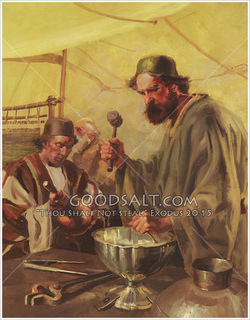
We have example where Yahweh gave wisdom to those who asked or needed it.
Bazalel the son of Uri.
Exdous 31:1 And the LORD spake unto Moses, saying, 2 See, I have called by name Bezaleel the son of Uri, the son of Hur, of the tribe of Judah: 3 And I have filled him with the spirit of God, in wisdom, and in understanding, and in knowledge, and in all manner of workmanship, See, I have called by name Bezalel the son of Uri, the son of Hur: I have filled him with the Spirit of God, in wisdom, in understanding, in knowledge, and in all manner of workmanship:
Even as God specifically chose Moses and Aaron, He also specifically chose these craftsmen for His service. Deu 34:9
Bazalel the son of Uri.
Exdous 31:1 And the LORD spake unto Moses, saying, 2 See, I have called by name Bezaleel the son of Uri, the son of Hur, of the tribe of Judah: 3 And I have filled him with the spirit of God, in wisdom, and in understanding, and in knowledge, and in all manner of workmanship, See, I have called by name Bezalel the son of Uri, the son of Hur: I have filled him with the Spirit of God, in wisdom, in understanding, in knowledge, and in all manner of workmanship:
Even as God specifically chose Moses and Aaron, He also specifically chose these craftsmen for His service. Deu 34:9
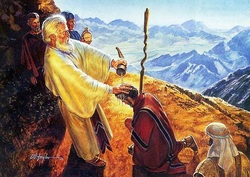
And Joshua the son of Nun was full of the spirit of wisdom; for Moses had laid his hands upon him: and the children of Israel hearkened unto him, and did as the LORD commanded Moses.
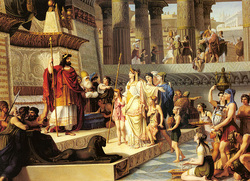
Yah also granted King's Solomon's request for wisdom..
1Ki 4:29 And God gave Solomon wisdom and understanding exceeding much, and largeness of heart, even as the sand that [is] on the sea shore.
1Ki 10:6 And she said to the king, It was a true report that I heard in mine own land of thy acts and of thy wisdom.7 Howbeit I believed not the words, until I came, and mine eyes had seen [it]: and, behold, the half was not told me: thy wisdom and prosperity exceedeth the fame which I heard. 8 Happy [are] thy men, happy [are] these thy servants, which stand continually before thee, [and] that hear thy wisdom.
JUST AS WE STILL CAN
Wisdom in the Bible. http://www.jewishencyclopedia.com/articles/14950-wisdom
All human wisdom and skill come from God. The spirit of God made Joseph discreet and wise (Gen. xli. 38-39), inspired and prepared Bezaleel and other artists for the work of the Tabernacle (Ex. xxxi. 3-6), and was also the source of the wisdom of Joshua (Deut. xxxiv. 9) and Solomon (I Kings iii. 12, 28). "The Lord giveth wisdom" (Prov. ii. 6; comp. Job xxxviii. 36; Ps. li. 8 [A. V. 6]; Dan. ii. 21), and He annuls the wisdom of the wise (Isa. xxix. 14). Great blame, therefore, attaches to those who disregard the divine source of their wisdom and become conceited and sinful (Isa. v. 21, xxix. 14; Jer. iv. 22, viii. 8-9, ix. 22). Wisdom is acquired, moreover, by the observation of nature (Prov. vi. 6; Job xxxv. 11) and of history (Deut. xxxii. 29; Hos. xiv. 10 [A. V. 9]; Prov. viii. 33, xix. 20), as well as by study and by association with the wise (Prov. ix. 9, xiii. 20; Job xxxii. 7).
The wise were sought out for their counsel (Deut. i. 13, 15; II Sam. xiv. 20, xvi. 23; Prov. xii. 18, xiii. 14), so that, like the priest with his Torah and the prophet with his revealed word of God, they formed a special class (Jer. xviii. 18). In more primitive times "wise women" were consulted (II Sam. xiv. 2; xx. 16, 22), and at a later period females who were skilled in the art of music and song were called "wise women" (Jer. ix. 17).
1Ki 4:29 And God gave Solomon wisdom and understanding exceeding much, and largeness of heart, even as the sand that [is] on the sea shore.
1Ki 10:6 And she said to the king, It was a true report that I heard in mine own land of thy acts and of thy wisdom.7 Howbeit I believed not the words, until I came, and mine eyes had seen [it]: and, behold, the half was not told me: thy wisdom and prosperity exceedeth the fame which I heard. 8 Happy [are] thy men, happy [are] these thy servants, which stand continually before thee, [and] that hear thy wisdom.
JUST AS WE STILL CAN
Wisdom in the Bible. http://www.jewishencyclopedia.com/articles/14950-wisdom
All human wisdom and skill come from God. The spirit of God made Joseph discreet and wise (Gen. xli. 38-39), inspired and prepared Bezaleel and other artists for the work of the Tabernacle (Ex. xxxi. 3-6), and was also the source of the wisdom of Joshua (Deut. xxxiv. 9) and Solomon (I Kings iii. 12, 28). "The Lord giveth wisdom" (Prov. ii. 6; comp. Job xxxviii. 36; Ps. li. 8 [A. V. 6]; Dan. ii. 21), and He annuls the wisdom of the wise (Isa. xxix. 14). Great blame, therefore, attaches to those who disregard the divine source of their wisdom and become conceited and sinful (Isa. v. 21, xxix. 14; Jer. iv. 22, viii. 8-9, ix. 22). Wisdom is acquired, moreover, by the observation of nature (Prov. vi. 6; Job xxxv. 11) and of history (Deut. xxxii. 29; Hos. xiv. 10 [A. V. 9]; Prov. viii. 33, xix. 20), as well as by study and by association with the wise (Prov. ix. 9, xiii. 20; Job xxxii. 7).
The wise were sought out for their counsel (Deut. i. 13, 15; II Sam. xiv. 20, xvi. 23; Prov. xii. 18, xiii. 14), so that, like the priest with his Torah and the prophet with his revealed word of God, they formed a special class (Jer. xviii. 18). In more primitive times "wise women" were consulted (II Sam. xiv. 2; xx. 16, 22), and at a later period females who were skilled in the art of music and song were called "wise women" (Jer. ix. 17).
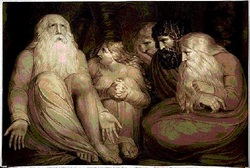
Job and the Psalmist tells us that the beginning of wisdom is to fear Yahweh:
Job 28:27 Then did he see it, and declare it; he prepared it, yea, and searched it out. 28 And unto man he said, Behold, the fear of the Lord, that [is] wisdom; and to depart from evil [is] understanding.
Psa 111:10 The fear of the LORD [is] the beginning of wisdom: a good understanding have all they that do [his commandments]: his praise endureth for ever.
"THE FEAR OF THE LORD BENEFITS OUR LIVES The fear of the Lord brings benefits to whole cultures as well as to individuals. We will focus on the individual first. Later on we will note how the fall and rise of cultures are dependent upon how they respond to God. The fear of the Lord, then, is the proper and humble response to God and His commands." http://foundationsforfreedom.net/Topics/FearGodMan/FearGod014.html
Job 28:27 Then did he see it, and declare it; he prepared it, yea, and searched it out. 28 And unto man he said, Behold, the fear of the Lord, that [is] wisdom; and to depart from evil [is] understanding.
Psa 111:10 The fear of the LORD [is] the beginning of wisdom: a good understanding have all they that do [his commandments]: his praise endureth for ever.
"THE FEAR OF THE LORD BENEFITS OUR LIVES The fear of the Lord brings benefits to whole cultures as well as to individuals. We will focus on the individual first. Later on we will note how the fall and rise of cultures are dependent upon how they respond to God. The fear of the Lord, then, is the proper and humble response to God and His commands." http://foundationsforfreedom.net/Topics/FearGodMan/FearGod014.html
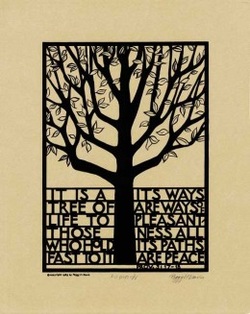
Pro 1:1 The proverbs of Solomon the son of David, king of Israel; 2 To know wisdom and instruction; to perceive the words of understanding; 3 To receive the instruction of wisdom, justice, and judgment, and equity; 4 To give subtilty to the simple, to the young man knowledge and discretion. 5 A wise [man] will hear, and will increase learning; and a man of understanding shall attain unto wise counsels: 6 To understand a proverb, and the interpretation; the words of the wise, and their dark sayings. 7The fear of the LORD [is] the beginning of knowledge: [but] fools despise wisdom and instruction.
Pro 1:20 Wisdom crieth without; she uttereth her voice in the streets: 21She crieth in the chief place of concourse, in the openings of the gates: in the city she uttereth her words, [saying], 22 How long, ye simple ones, will ye love simplicity? and the scorners delight in their scorning, and fools hate knowledge? 23 Turn you at my reproof: behold, I will pour out my spirit unto you, I will make known my words unto you. 24 Because I have called, and ye refused; I have stretched out my hand, and no man regarded; 25 But ye have set at nought all my counsel, and would none of my reproof: 26 I also will laugh at your calamity; I will mock when your fear cometh; 27When your fear cometh as desolation, and your destruction cometh as a whirlwind; when distress and anguish cometh upon you. 28 Then shall they call upon me, but I will not answer; they shall seek me early, but they shall not find me: 29 For that they hated knowledge, and did not choose the fear of the LORD: 30 They would none of my counsel: they despised all my reproof. 31 Therefore shall they eat of the fruit of their own way, and be filled with their own devices. 32 For the turning away of the simple shall slay them, and the prosperity of fools shall destroy them. 33 But whoso hearkeneth unto me shall dwell safely, and shall be quiet from fear of evil
Pro 2:1 My son, if thou wilt receive my words, and hide my commandments with thee;2 So that thou incline thine ear unto wisdom, [and] apply thine heart to understanding; 3 Yea, if thou criest after knowledge, [and] liftest up thy voice for understanding; 4 If thou seekest her as silver, and searchest for her as [for] hid treasures; 5 Then shalt thou understand the fear of the LORD, and find the knowledge of God. 6 For the LORD giveth wisdom: out of his mouth [cometh] knowledge and understanding. 7 He layeth up sound wisdom for the righteous: [he is] a buckler to them that walk uprightly. 8 He keepeth the paths of judgment, and preserveth the way of his saints. 9 Then shalt thou understand righteousness, and judgment, and equity; [yea], every good path. 10 When wisdom entereth into thine heart, and knowledge is pleasant unto thy soul; 11 Discretion shall preserve thee, understanding shall keep thee:
------------------------------------------------------------------------------------------------
Pro 15:29 The LORD [is] far from the wicked: but he heareth the prayer of the righteous. 30 The light of the eyes rejoiceth the heart: [and] a good report maketh the bones fat. 31 The ear that heareth the reproof of life abideth among the wise. 32 He that refuseth instruction despiseth his own soul: but he that heareth reproof getteth understanding. 33 The fear of the LORD [is] the instruction of wisdom; and before honour [is] humility.
-----------------------------------------------------------------------------------------------
Pro 16:16 How much better [is it] to get wisdom than gold! and to get understanding rather to be chosen than silver!
----------------------------------------------------------------------------------------------------
Pro 19:8 He that getteth wisdom loveth his own soul: he that keepeth understanding shall find good.
-------------------------------------------------------------------------------------------------
The text above tells us that people obtain the Tree of Life when they obtain wisdom. Man lost access to the Tree of Life in the garden due to sin. Mankind is now suffering in the midst of turmoil and chaos as a result.
Notice the manner in which God speaks of Wisdom.
Prov 3:19-20 The LORD by wisdom hath founded the earth; by understanding hath he established the heavens. By his knowledge the depths are broken up, and the clouds drop down the dew.
Even God used wisdom to found the earth. When all of life is in turmoil and chaos, as the world stood in Chaos when God set to work to rectify it, wisdom of God will make our world's brand new again! Wisdom set the world in order and founds it. It will do the same for our lives.
Wisdom provides one length of days, similar to the eternal life which the tree of life provided for mankind. We will find that the wisdom of God, which the writer of Proverbs is referring to, actually brings us back to the state of life which Adam experienced before the fall while he yet dwelt in the garden of Eden.
Is this not God's whole point of salvation?
Wisdom is said to be riches. Paul explained in Colossians that the riches of wisdom and knowledge are all found "in Christ."
Colo 2:2-3 That their hearts might be comforted, being knit together in love, and unto all riches of the full assurance of understanding, to the acknowledgement of the mystery of God, and of the Father, and of Christ; In whom are hid all the treasures of wisdom and knowledge.
All these references to wisdom and riches found in Christ teach us a wonderful truth! Let us dig these gems out from the Bible!
The fruit of the Tree of Life in Eden was actually the very means by which man would receive eternal life. The wisdom of God provides that very eternal life, for the writer of Proverbs says that length of days is in the hand of wisdom. Picture this as a tree with her fruit. Like the fruit at the tips of the Tree of Life's branches offering eternal life to humanity, wisdom extends its hand, holding length of days for man to partake of. We see that Wisdom is indeed likened to a Tree of
life ! http://mikeblume.com/wis1.htm
_________________________________________________________________________
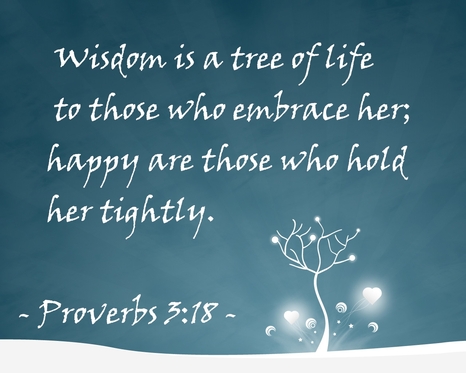
So our first tree of life we are studying is wisdom. From what we have read it is so important that we look for wisdom and find it in all the decisions we make. We must also pray for wisdom as those did in the bible. We can ask others who we feel are wise to pray for us. But we must consider wisdom in all we do. Torah and other parts of scripture can also guide us to wisdom. But remember the fear of Yahweh is the beginning of wisdom so we should always begin our journey to wisdom with seeking Yah first.
D'vorah.
D'vorah.
